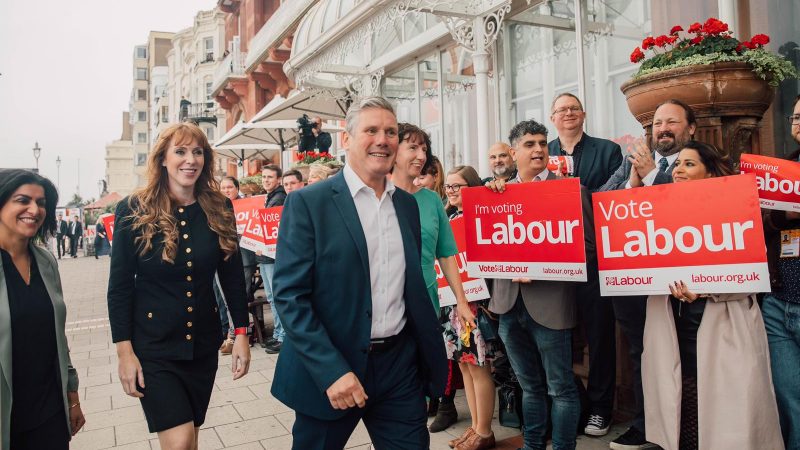
Oliver Dowden reiterated the government line on pay rises for nurses over the weekend, telling the BBC that the RCN’s demand for an increase of 5% above inflation was “simply not affordable”. Labour confirmed last week that this is also their position. While criticising the government’s handling of negotiations with nursing unions, Shadow Health Secretary Wes Streeting added: “Inflation plus 5% is not a figure that we could reasonable offer if we were in government today.” Labour’s previous stance on pay demands was that it was for the unions and the government to negotiate a settlement. But there had been earlier indications that the opposition at least somewhat shared the government’s view on the feasibility of inflation-matching pay rises. Keir Starmer told LBC last week that nurses’ demands were “probably more than can be afforded”, while Lisa Nandy previously suggested that Labour sees inflation-level pay rises for the public sector as “unaffordable” because of the Tory mismanagement of the economy.
The government has claimed that giving every public sector worker a pay rise in line with inflation would cost an additional £28bn, equivalent to £1,000 extra per household. But this figure has been rejected by the Institute for Fiscal Studies (IFS), in part because it ignores the public sector pay rise for which the government had already budgeted. Factoring this in, the IFS has estimated that increasing pay to match inflation of 10% (the Office for Budget Responsibility has forecast that average inflation for 2022-23 will be around this level) would cost approximately £18bn. And that is without considering the increased tax revenue that would be raised from public sector workers as a result of any pay rise.
Research by the Equality Trust, published today, found that the number of UK billionaires has increased by a fifth since the beginning of the Covid pandemic. The charity calculated that the number of billionaires has risen from 147 in 2020 to 177 this year, with the median billionaire now holding around £2bn. Using inflation-adjusted wealth data, the report claimed that the combined wealth of Britain’s billionaires has risen from £53.9bn in 1990 to more than £653bn in 2022. Equality Trust co-executive director Jo Wittams declared that the findings were a “national disgrace”, adding: “The UK’s record on wealth inequality is appalling, grossly unjust and presents a real threat to our economy and to our society.”
The charity is using the report to urge the government to tax wealth in line with incomes, as well as calling for the financial sector to be reformed and for a crackdown on the UK’s role in tax avoidance. A wealth tax is an obvious response to anyone claiming that pay rises in line with inflation are “simply not affordable”. As Beth Winter MP set out in a piece for LabourList last month, the IFS’ estimate of £18bn could potentially be met through an annual wealth tax of 2% on wealth over £5m. Labour has talked about the need for “fairer choices” for working people and emphasised the different choices a Starmer-led government would make, including the abolition of non-dom status. A wealth tax is a logical next step.
Sign up to LabourList’s morning email for everything Labour, every weekday morning.



More from LabourList
‘Energy efficiency changes must work for older private renters’
‘Labour’s creative destruction dilemma’
Economic stability for an uncertain world: Spring Statement 2026